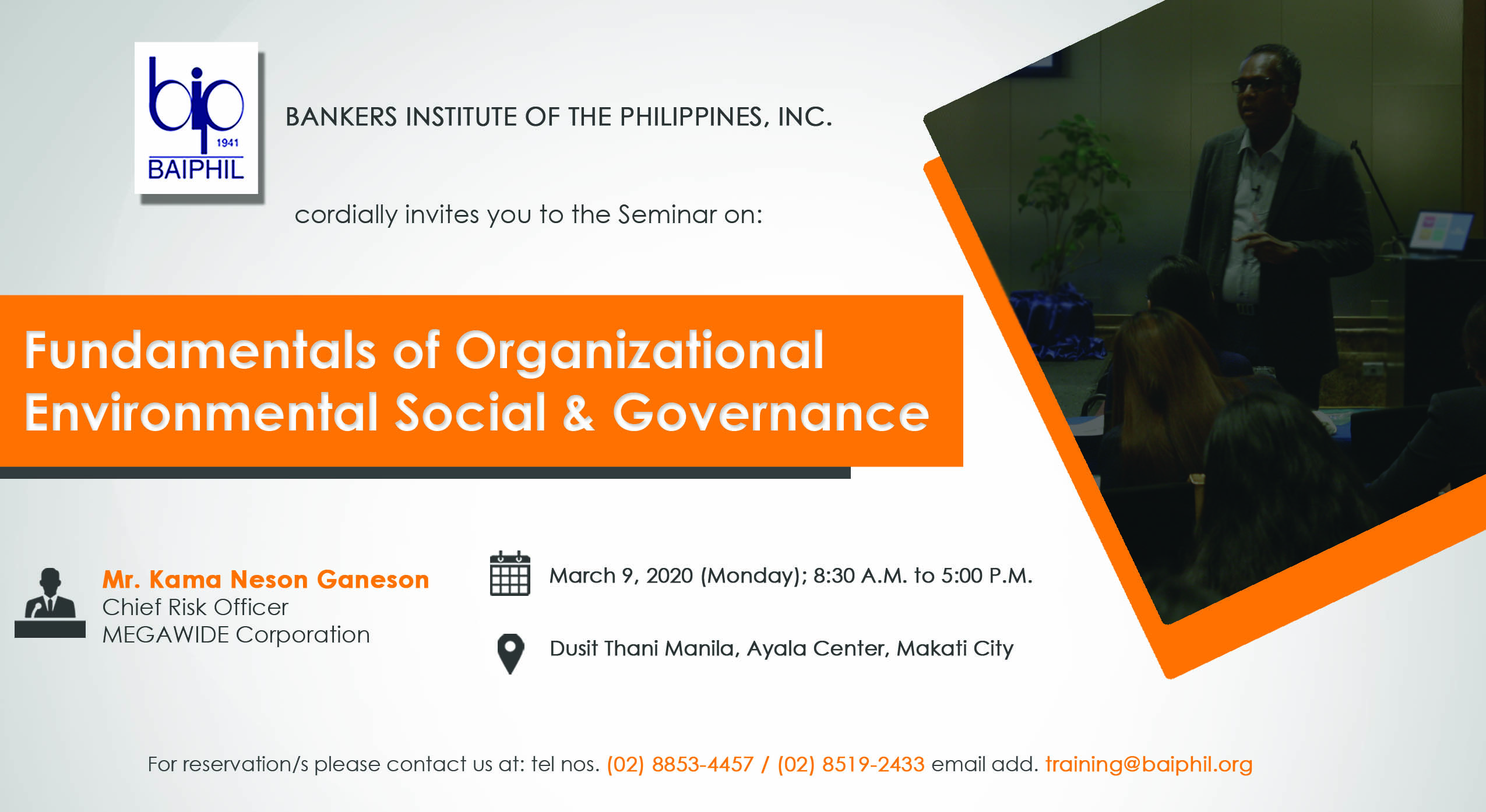Description
Program Overview:
ESG stands for Environmental Social and Governance, and refers to the
three key factors when measuring the sustainability and ethical impact of an
investment in a business or company.
It is a generic term used in capital markets and commonly used by investors
to evaluate the behavior of companies, as well as determining their future
financial performance.
The Environmental Social and Governance factors are a subset of nonfinancial
performance indicators which include ethical, sustainable and corporate
government issues such as making sure there are systems in place to ensure
accountability and managing the corporation’s carbon footprint.
Course Outline:
o Current Issues and Global Risks 2020
o Why ESG is gaining Context in today’s world
o What is ESG / Social Responsibility / Sustainability
o Benefit / Purpose of Corporates undertaking ESG
o ESG for Financial Institutions
o How are other Companies doing:
Philippines-Based
Based Outside Philippines
o Key Indicators to measure ESG Performance for Financial Institutions
o ESG from the perspective of:
Risk Management
Investor Relations
Operational Efficiency
Reputational / Brand Enhancement
o Key Elements of ESG for Corporates
Stakeholder Management
Materiality Assessment
o ESG Reporting
o Standards Related to ESG
GRI Standards
UN Sustainable Development Goals
RobecoSam / Dow Jones Sustainability Index
SAS
Schedule:
March 9, 2020; 8:30 A.M. to 5:00 P.M.
Venue:
Dusit Thani Manila, Ayala Center, Makati City

